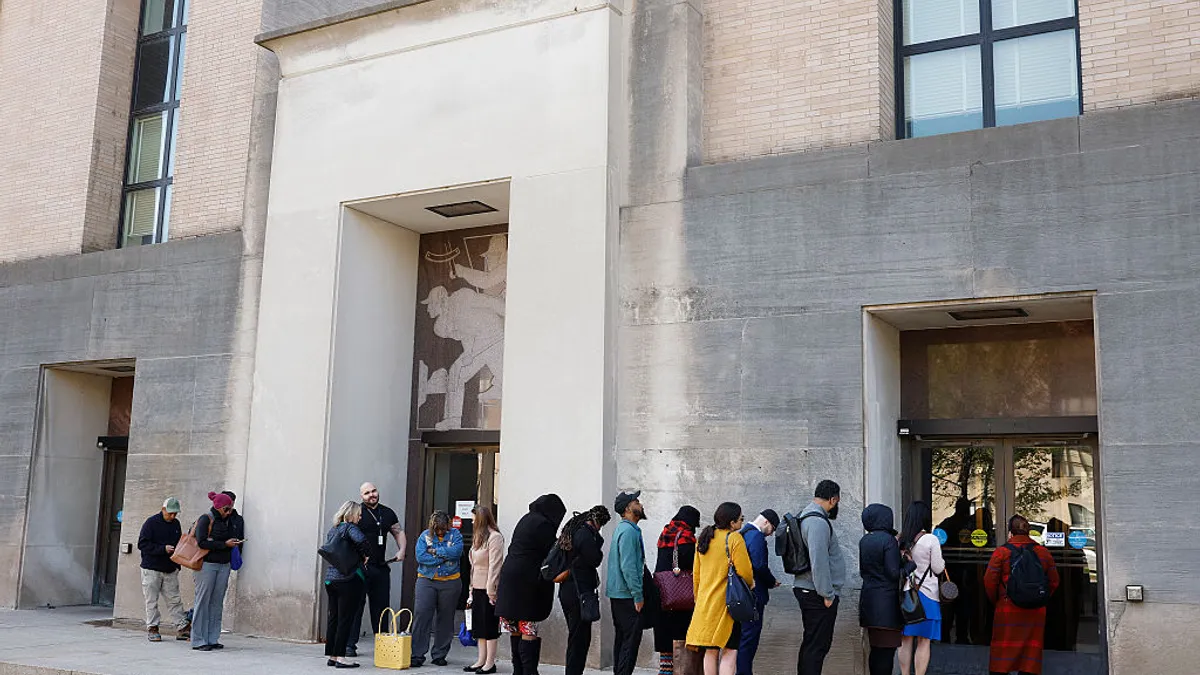Depression treatments are overdue for innovation, and while numerous drugs fill out the biopharma pipeline, a handful of failures have left the space without a breakthrough in years.
As of January 2023, there were 163 drug candidates across the industry for mental illnesses, according to PhRMA, including 54 for depression. Despite these prolific shots on goal, success has been elusive.
For example, Sage Therapeutics and Biogen’s depression treatment Zurzuvae, which failed to gain approval for major depressive disorder, the most common type of depression, and is only greenlit to treat postpartum depression. Psychiatric drugs have also largely been passed over in the last 20 years despite a large unmet need for many conditions. Depression, for instance, impacts roughly 280 million people worldwide, according to the WHO.
Among the biopharmas eager to find a novel treatment for depression is Autobahn Therapeutics, a San Diego-based biotech with one candidate in the clinic looking at both MDD and bipolar disorder depression. Its lead candidate ABX-002 is a selective thyroid hormone beta receptor agonist that is about to enter phase 2 clinical trials for both indications.
Since launching in 2020, Autobahn has raised some serious cash. Last month, the company completed a $100 million series C funding round with big investors, including Biogen, Bristol Myers Squibb and Pfizer Ventures. Prior to the series C, Autobahn raised $125 million with the same slate of Big Pharma backers and other venture capital investors. Autobahn was also named a biotech to watch, with potential for an IPO down the line. The company’s capital grabs underscore Big Pharma’s interest in pursuing solutions for MDD.
The fresh funding will help Autobahn push into phase 2 clinical trials, the company said. Here, we caught up with Kevin Finney, Autobahn’s president and CEO, in an email interview to explore how the company snagged high-profile investors in a time when the biotech investment market is still clawing back from years of stagnant growth.
PHARMAVOICE: How does ABX-002 fit into the landscape of what’s already available for MDD and bipolar disorder depression? What makes ABX-002 different?
KEVIN FINNEY: One of the major drivers behind the unmet need in MDD and bipolar depression is a lack of safe and well-tolerated treatments that provide clinically meaningful benefit to patients. More than half of depression patients have an inadequate response to [selective serotonin reuptake inhibitors]. These treatments … carry burdensome side effects that fail to address highly prevalent symptoms of depression and force patients to discontinue treatment.
The brain bioenergetic mechanism underlying ABX-002 is believed to be uniquely positioned to treat the highly prevalent subpopulation of atypical depression, which accounts for up to 35% of all MDD patients and up to 50% of bipolar depression patients, and for which there are currently no approved treatments.
Our phase 1 study showed ABX-002 to be safe and well tolerated in healthy volunteers and supports a profile which has the potential to be absent of the predominant side effects … such as weight gain, sexual dysfunction, dissociation and somnolence.
What is the market potential for ABX-002?
There are more than 21 million people living with MDD in the U.S. accompanied by about 7 million people living with bipolar depression. Despite substantial tolerability concerns and lackluster efficacy, several of the approved therapies are currently generating annual revenues of $1 billion or more as adjunctive treatments for depression. We believe the target profile of ABX-002 has the potential to achieve similar commercial success given the significant needs that could be filled across MDD, bipolar depression and the subpopulation of atypical depression.
How would you describe the current biotech investment space?
It’s no secret the capital markets environment has challenged biotech companies of all shapes and sizes over the past several years. Despite these headwinds, company-building investors continue to support stories with strong biological and clinical rationale in areas of unmet need and clear paths to value inflection. We’re very fortunate to have the support of such investors … [and] on the heels of completing this series C, our focus is executing the clinical strategy funded by this raise.
The neuro space has been littered with disappointments in the last few years with several drugs failing to gain approval. How do you win over investors at early clinical stages in that environment?
Investors were quick to appreciate the tremendous unmet need that exists in neuropsychiatry. As such, many are actively supporting companies in the MDD and bipolar depression spaces and sought to understand the steps we have taken to derisk the development pathway of ABX-002. This includes our characterization of preclinical pharmacology as well as phase 1 safety data in healthy volunteers, just to name a few. Investors were also interested in understanding how we are thinking about derisking our phase 2 clinical studies in MDD and bipolar depressions, in everything from the design of the study, to the endpoints being utilized, to the nature of the patient populations being studied. Ultimately, we sought to educate investors on the data and rationale supporting each of our development decisions to increase the probability of success in our future clinical studies.



















